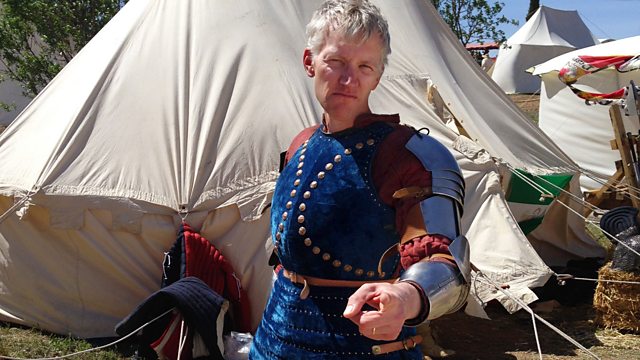17/03/2015
Helen Castor asks why Friedrich Engels's links with Manchester are more celebrated than those of Richard Cobden, and Tom Holland tracks down the last wolf.
Today, Helen Castor is joined by Professor Anthony Howe and Professor Karen Sayer.
On the 150th anniversary of his death, has the legacy of the proponent of free-trade, Richard Cobden, been outshone by socialist Friedrich Engels? Professor Martin Hewitt sends a postcard from 1840's Manchester to explain the impact of the Anti-Corn Law League.
Tom Holland is in Stirling to meet the conservation writer Jim Crumley and hear about the last wolf, whilst Professor Ronald Hutton explains why the creature has taken on such a mythical status.
Meanwhile, Dr Sam Willis shares his love of pirates and the question 'What if?'.
You can email the programme at making.history@bbc.co.uk.
Producer: Nick Patrick
A Pier production for ±«Óătv Radio 4.
Last on
Web Links
Helen Castor takes the chair as historians and archaeologists come together to discuss issues and share the latest historical research.
In this edition: radical Manchester; the legacy of Richard Cobden; the last wolf and the book that encouraged Dr Sam Willis to study pirates and the sea.
Joining Helen is from Leeds Trinity University where she works on rural communities, landscape, environment and human/animal relationsÌę
, an historian of the 19th and 20th centuries at the University of East Anglia in Norwich - in particular free trade and Liberal England. He is currently leading work on the letters of the free trade reformer Richard Cobden.
Radical Manchester
, the historian of Manchester who is based at the University of Huddersfield, takes listeners to three locations that show a different side ofÌę 1840âs Manchester. Not the factories, railways and canals and the rapidly industrialising city, nor the slum housing made famous by the work of Friedrich Engels; rather, three places that are central to the development of radical, urban liberalism: the ; the on King Street and what was once the Free Trade Hall. In one the new urban middle class met and networked. Another represented the struggle to drag civic government out of the middle ages and the latter symbolised one of the the big political ideas that Manchester gave the world - Free Trade.
Richard Cobden
Friedrich Engels is perhaps the most famous political thinker linked to Victorian Manchester. However, the free-trade reformer probably has the greatest legacy.
A successful businessman, radical and Liberal statesman, Cobden was the leading figure in the . He argues that protectionism benefitted the aristocracy and kept the price of food artificially high for the growing population of urban Britain. He saw Free Trade as a way of supporting the British economy (and its population) and delivering peace - âwelfare not warfareâ is the phrase that Anthony Howe has coined. Cobden was essentially on the side of consumers and his political work in Manchester promoted the reform of local and parliamentary government.
Ìę
The Last Wolf
Tom Holland meets up with one of Britainâs leading conservation writers at Stirling castle to discuss the myth of the last wolf.
The symbol of Stirling is a wolf and this refers to a story where the howl of a wolf alerted local people to a Viking raid is the 9th or 10th century. But, after this there are few stories of wolves doing humans a good turn. Invariably, the wolf is âbadâ a danger to livestock and children. So much so that Edward 1st paid a bounty to have the wold eradicated. However, stories about wolves stretch into the nineteenth century and so it is impossible to know precisely when the wolf disappeared from the British landscape. Now, in the 21 century, the wolf is one of the creatures that those leading the so-called wish to re-introduce.
Helen Castor also talked to from the University of Bristol who is our leading students of myth and folklore to explain how wolves move from âgoodâ to âbadâ.
Ìę
Further reading - The Last Wolf by Jim CrumleyÌę Published by Birlinn
Inheritance Books
Helen Castor talks to Dr Sam Willis about the book that encouraged him to take up history and the book heâd leave behind to encourage others.
Sam selected âA history of the robberies and murders of the most notorious piratesâ by captain Charles Johnson and âWhat Ifâ by Professor Jeremy Black.
Ìę
Ìę
The ±«Óătv is not responisble for the content of external websites
Broadcast
- Tue 17 Mar 2015 15:00±«Óătv Radio 4
Podcast
-
![]()
Making History
Popular history series where the past connects with the present.


